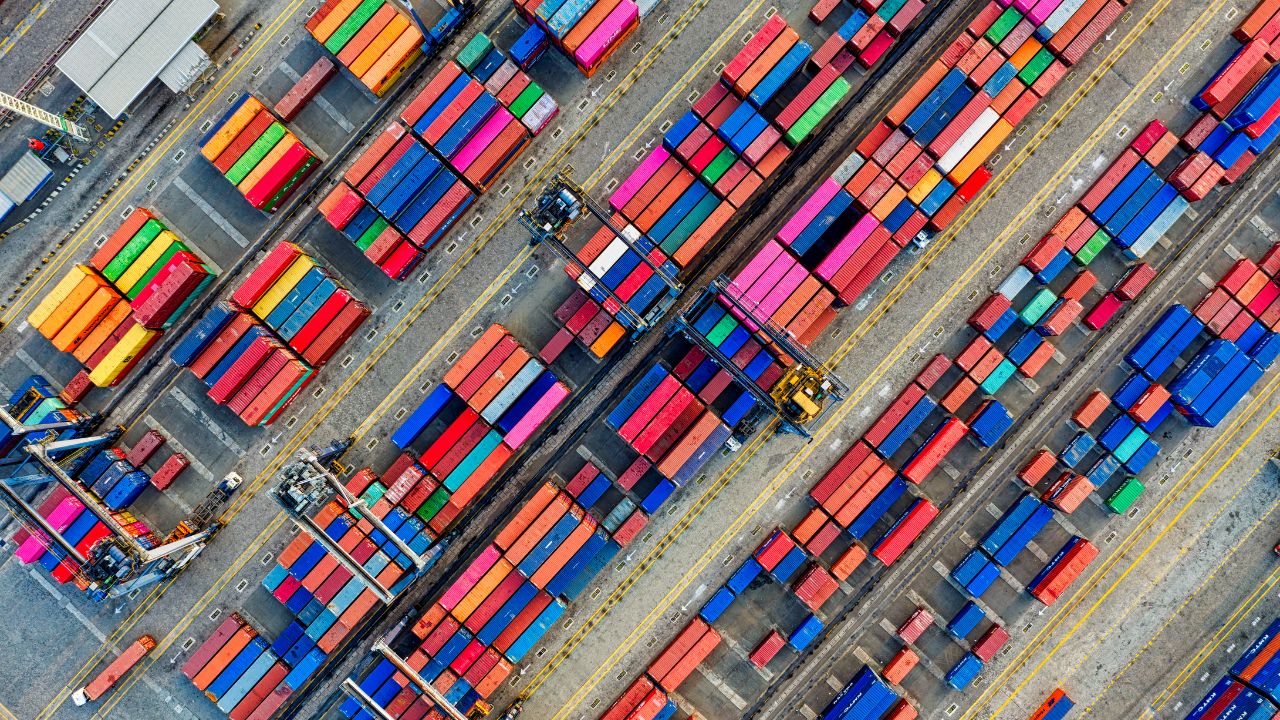Today the crypto landscape is increasingly evolving. Jurisdictions establish clear regulations so that all financial institutions can prosper. Some countries stand out as they create the best environment for individuals and businesses to thrive in the digital asset environment.
What Makes a Country Crypto-Friendly?
- Low or No Crypto Tax: Some countries do not require taxation on funds gained through crypto. This makes individuals and other financial entities thrive in the market.
- Clear Regulations: If the rules are well prepared and transparent, this reduces uncertainty and risks in transactions.
- Legal Recognition: When countries officially recognize crypto, it increases the traffic between industries.
- Adoption and Fintech Infrastructure: Blockchain, digital wallets, and fintech solutions are becoming widespread and this makes more businesses use crypto.
- Banking Access: It is a lot easier for businesses to access banking services through crypto. This process provides smooth operations and it becomes a bridge between traditional institutions and the digital environment.
Top 12 Crypto Friendly Countries of 2025
Portugal is the right place for your business with 0% tax on individual gains. Additionally, there is no VAT or capital gains tax. With more than 150 businesses accepting crypto in Lisbon, Portugal is considered a crypto haven.
Germany recognizes crypto as private money with 0% tax on crypto held over 12 months. Banks such as N26 and SolarisBank offer crypto services.
Switzerland is known for its “Crypto Valley” in Zug, which attracts startups from all around the world. The country does not impose any capital gains, but only minor canton-level wealth taxes.
Singapore has no capital gains taxes and it has a strong AML regulation system. Adaptation is high, with 43% of young adults owning crypto.
El Salvador has made a milestone by making Bitcoin a legal tender. With 0% tax on foreign crypto income, the country started the project “Bitcoin City” powered by volcano energy.
The United Arab Emirates (Dubai) offers a tax-free environment for personal/crypto income. The VARA authority controls regulation working in an ecosystem involving more than 1,000 crypto firms in the DMCC free zone.
Malta is the first EU country adapting a crypto framework. It later earned the title “Blockchain Island.” The country exempts long-term capital gains from tax and remains an important center for crypto businesses.
Estonia only taxes crypto when it is strictly necessary, which offers flexibility for all investors. With its e-residency program, the country supports remote business startups. More than 55% of Baltic crypto startups are Estonian.
Slovenia imposes no tax on individual gains. With more than 100 crypto-integrated stores in Ljubljana, Slovenia accepts crypto through tools like GoCrypto.
Georgia does not charge for capital gains tax on crypto. The country benefits from low-cost energy, which gives the country one of the highest Bitcoin hash rates per capita in the world.
| Country | Tax Framework |
| Portugal | 0% gains (non-business) |
| Germany | 0% after 12 months |
| Switzerland | No gains tax; wealth tax varies |
| Singapore | No capital gains tax |
| El Salvador | 0% on foreign income |
| UAE | No income or crypto tax |
| Malta | No long-term capital gains |
| Estonia | Tax on distribution only |
| Slovenia | 0% gains for individuals |
| Georgia | %0 tax income |
How to Select the Right Crypto-Friendly Country?
There are many options to choose from and many categories to consider when choosing a crypto-friendly country to operate in. The first category is about the regulatory clarity. Our readers who are looking to operate in a certain country should first check and learn more about the regulatory body that is responsible for compliance in the country. MiCA in the EU, SEC in the U.S., VARA in the UAE, and MAS in Singapore can help you clarify the regulations for that specific jurisdiction. Another thing to consider is the licensing environment. Many countries like the U.S., the EU countries, Canada, Japan, and more offer Virtual Asset Service Provider (VASP) licensing processes for you to safely comply with mandates. Knowing which countries offer or require licensing is helpful for your company. Countries that offer regulatory sandboxes for you to safely experiment in without getting fined is another qualifier to consider in your decision process.
Banks can offer support and crypto-fiat bridges that make crypto exchanges easier; another thing to think about while deciding. Countries that offer zero or low crypto taxes are preferred more because of the help they provide new companies looking to operate in their country. Some examples in 2025 are Cayman Islands, the UAE, El Salvador, Germany, and Portugal with their tax-free offers. Crytocurrency mining is exempt from these examples, though.
The local infrastructure of the country is one other category we’ll urge you to look more into. Established exchanges, active web3 ecosystems, and developer communities that are strong can help you grow more efficiently. You wouldn’t want to operate in a country that doesn’t have long-term security and politially unsafe; stability and political support is, therefore, one of the other category to research more.
Why Does AML Matter in Crypto?
AML measures are there to make sure you’re operating in a transparent environment, creating safety, and preventing crimes. Your company should already operate according to the FATF Travel Rule. This regulation requires sender and recipient details in international crypto transactions; your company’s compliance ensures that money laundering is prevented. VASP compliance also equally benefits from complying with AML measures. VASP compliance demands firms and waller providers to conduct CDD and risk management system.
Sanction evasion can occur more in the crypto sector, this way is used by fraudsters to avoid OFAC or the UN regulations as they operate anonymously. This is why wallet screening and blockchain analytics matter a lot; using these features make catching fraud easier. Regulatory frameworks also demand AML compliance, we can give 6AMLD in the EU and FinCEN in the US as examples for regulatory bodies that ask for monitoring and reporting to be done to protect companies. Your company may face fines, account freezes, loss of license. These risks push companies to act accordingly and implement AML measures for safety.
Global Crypto Adoption Trends (2025)
Last year was a turning point for the global crypto industry. According to the Ainvest, 2024 and 2025, the use of crypto rose up to 43% which demonstrates the popularity of digital assets. It is possible to observe how it has become an integral part of financial landscape.
Let’s talk more about trends to check out when speaking of global crpyto trends. Retail growth is seen the most lately with Latin America and Southeast Asia; inflation, remittances and fitnech innovation helps them be the lead. Several jurisdictions now are also encouraging the implementation of these institutions. Some are approving crypto exchange-traded funds (ETFs), these funds give investors who aren’t experienced with crypto a change to access digital assets in a more regulated way. Speaking of access, central bank digital currencies (CBDCs) and stablecoins are unstoppable when is comes to growth and implementation. More than 130 countries are running pilot or research programs, the support in undeniable. With this support, comes more regulations. The EU’s MiCA framework rollout is continuing and the G20 is aiming to reach international compliance as the sector is continuing to grow. The same can’t be said for DeFi and NFTs. These two were widely popular in recent years but the growth is slowing down. Both of these sectors are still being used for innovation in financial spaces even though their growth is questionable.
How Can Sanction Scanner Help You?
If you are running a crypto business or working as a Virtual Asset Service Provider (VASP), staying compliant can feel overwhelming with regulations changing so fast. That is where Sanction Scanner comes in. We make compliance simple, fast, and reliable.
- Sanctions & PEP Screening: We help you screen customers and transactions in real time against global sanctions, watchlists, and Politically Exposed Persons (PEPs) databases.
- Ongoing Monitoring: We assist you in tracking continuously to flag suspicious customers and transactions with our automated alert system. With our professional tools, you will respond fast to new risks or regulatory updates.
- Crypto Red Flags: We understand that detecting suspicious behavior in the crypto industry is difficult. Our tools will successfully detect unusual wallet activity, mixing services, and high-risk jurisdictions.
- API Integration: It is easy to seamlessly embed Sanction Scanner into your existing systems through powerful APIs. This will enable real-time compliance without disrupting user experience.
Ready to strengthen your screening? Request a demo today with Sanction Scanner and our team will provide you with full compliance at speed, 100% accuracy and efficiency
FAQ's Blog Post
A crypto-friendly country typically offers low or no taxes on crypto gains, clear regulations, legal recognition of digital assets, strong fintech adoption, and access to banking services for crypto businesses.
Portugal is one of the top choices, offering 0% tax on individual crypto gains along with no VAT or capital gains tax.
Clear and transparent regulations reduce uncertainty, build investor confidence, and help businesses comply with AML and licensing requirements without unnecessary risk.
When governments officially recognize cryptocurrencies, it adds legitimacy, encourages business adoption, and fosters broader use across industries.
South America and Southeast Asia have shown the fastest growth, while hubs like Portugal, Switzerland, Singapore, and Dubai stand out for regulation and infrastructure.
In 2024, illicit crypto activity reached up to $51 billion. Strong AML measures protect businesses from money laundering, fraud, and terrorist financing while ensuring regulatory compliance.
Virtual Asset Service Providers (VASPs), including exchanges, wallets, and payment providers must conduct transaction screening, monitoring, and reporting to meet global AML obligations.






